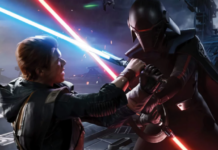Despite the Wii U being considered the first of the next-gen consoles, Nintendo has admitted it was not created with competition against Microsoft's or Sony's future consoles in mind. While the Wii U does boast high-def graphics and is reportedly two times more powerful than the current Xbox 360, Nintendo has admitted it will not be able to compete with the next-generation of systems. Rather, Nintendo is balancing graphical improvements and innovative technologies aimed at creating a "dynamic range of appeals that consumers can appreciate".
"There are a variety of different ways to show the unique appeal of software. What’s important here is not to narrow down what we can do. Rather, we have to create the dynamic range of appeals that the consumers can appreciate," Nintendo President Satoru Iwata said in a meeting with investors.
Iwata added: "We decided to make a proposal of an additional screen into the Wii U controller because developers could think of a variety of different possibilities here and there of using both a big TV screen and a screen in a player’s hand."
The Wii U's tablet-based controller has an approach similar to that of the Wii – build something unique and people will come. And if there is anything we can learn from the original Wii, it is that innovative technology will sell. The Wii didn't feature the most impressive graphics, or even the best games, but a solid list of game titles coupled with a new form of gameplay led very successful sales.
This time around, Nintendo's new console features not only unique technology with the tablet controller featuring Near Field Communication, but improved performance and a slightly different approach towards game developers. Combining all of them, Nintendo hopes will be a formula for success while steering clear as a competitor of the Xbox 720 or PS4.
"We are aiming to make a system which shall not be forced into competing with the others where the contenders can fight only with massive developer resources and long development times as their weapons," Iwata explained. "Having said that, however, as I mentioned, it is true that, in some software areas, we need to be engaged in the power games. Take The Legend of Zelda franchise, for example, the fans must be looking for the graphic representations that they do not see as cheap at all when the title is released for the Wii U."
According to game developers at Team Ninja, whatever Nintendo is doing is working. In an interview with Nintendo Gamer, Team Ninja's Fumihiko Yasuda and Yosuke Hayashi claimed the Wii U is "very easy to develop for" and "very similar" to developing for Xbox 360 and PS3.
Whether or not this translates to more third-party developers contributing to the Wii U remains to be seen, but it's a step in the right direction. As Nintendo has learned with the 3DS, titles for the system can make quite a difference in sales.







